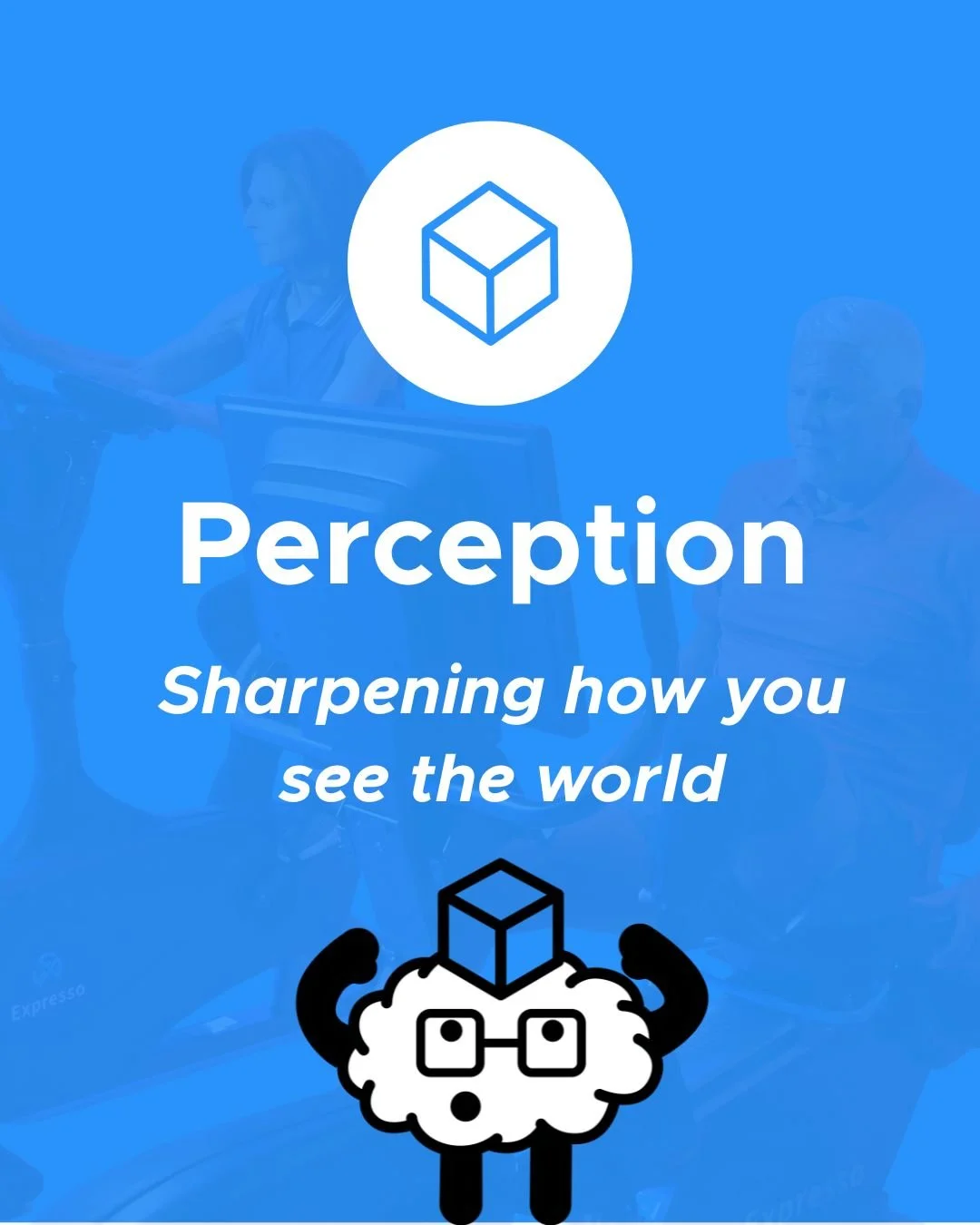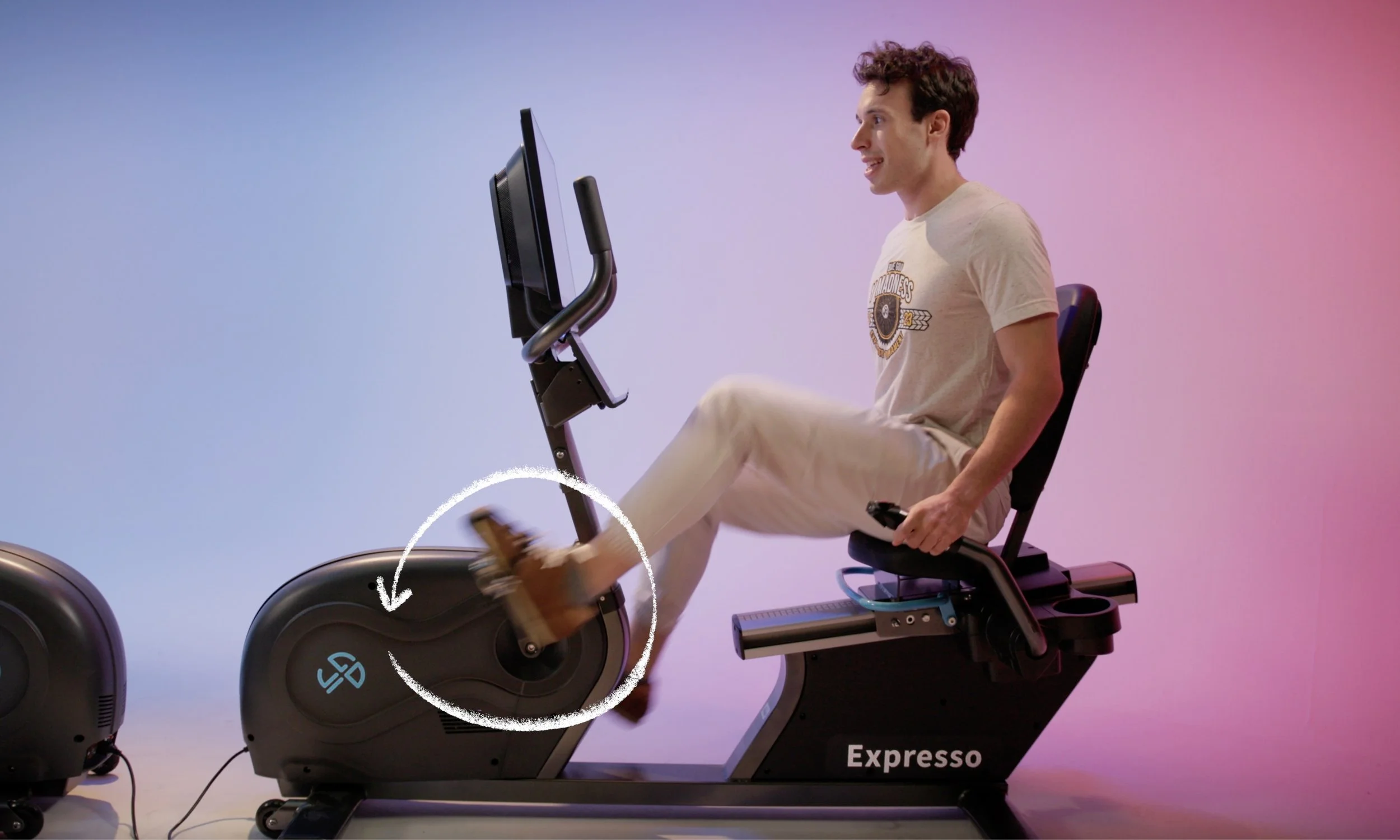Perception: Sharpening How You See the World
Why Perception Matters
Perception is how we understand the space around us. It’s the brain’s ability to interpret sensory input and map our environment—knowing where we are in a 3D space, recognizing 2D and 3D objects, and finding our way around.
As we age, the processing of spatial information slows, making it harder to move confidently through complex or unfamiliar environments. Older adults may get disoriented more easily in crowded or cluttered spaces. Vision changes—such as reduced acuity, contrast sensitivity, and depth perception—further complicate things, making it harder to judge distances and shapes【1】【2】. Together, these changes can undermine confidence and safety in daily life.
How Exercise Supports Perception
Exercise can strengthen perceptual skills by engaging the brain regions responsible for spatial awareness, visual processing, and coordination. Aerobic activity increases blood flow and oxygen delivery to the visual and spatial-processing centers of the brain, while dual-task training adds another layer: forcing the brain to decode visual cues and make rapid adjustments during movement.
Research supports this:
Aerobic and cognitive training together improve visual-spatial processing in older adults【3】.
Training that integrates physical and perceptual tasks has been linked to better orientation, navigation, and fall prevention【4】.
Training Perception Through Play
With Brain Skills Time Tracking, perception training is no longer invisible—it’s measurable. Our games challenge your brain to quickly pick up and interpret cues in dynamic environments.
Examples:
GoBattle: Requires precision and strong map-reading skills to navigate effectively. It also requires you to notice sudden shifts in terrain or obstacles.
Fast-moving environments test your ability to process multiple inputs at once.
Every second spent on these challenges strengthens perceptual accuracy and spatial awareness.
Why It Matters for Different Ages
Athletes & Teens: Sharper perception improves sports performance by helping players track objects, navigate space, and respond to opponents.
Adults: Strong perceptual skills help people safely navigate daily life—whether walking, driving, or cycling—and support efficient interaction with their environment, like reaching for objects or avoiding obstacles.
Older Adults: Perception training can:
Prevent falls and accidents by improving balance and awareness of surroundings.
Support safe navigation in homes and public spaces.
Strengthen spatial memory and orientation, which naturally decline with age【1】【4】.
Putting It Into Practice
How to train perception with Brain Skills Time Tracking:
Choose Visually Dynamic Games: Pick challenges with obstacles and map navigation.
Watch Your Game Summary: Check how much time you’re investing in perception skill-building after each ride.
Balance Training: Pair perception games with memory or executive function games for a more well-rounded brain workout. Strengthening your perception and spatial memory help you remember the road to points of interest (i.e your doctor office).
The Takeaway
Perception shapes how we understand and navigate the world around us. With Brain Skills Time Tracking, every ride can sharpen spatial awareness, improve reaction times, and build confidence in daily life. Whether you’re an athlete honing your edge, an adult navigating a busy city, or an older adult striving to stay independent, perception training is essential for a safer, sharper future.
📚 References
Owsley, C. Aging and vision. Vision Research, 2011. pubmed.ncbi.nlm.nih.gov
Jackson, GR & Owsley, C. Visual dysfunction, neurodegenerative diseases, and aging. Neurologic Clinics, 2003. pubmed.ncbi.nlm.nih.gov
Bamidis, PD, et al. A review of physical and cognitive interventions in aging. Neurosci Biobehav Rev, 2014. pubmed.ncbi.nlm.nih.gov
Li, C, et al. Effects of dual-task training on cognition and motor function in older adults with MCI: A randomized controlled trial. Front Aging Neurosci, 2023. pubmed.ncbi.nlm.nih.gov


